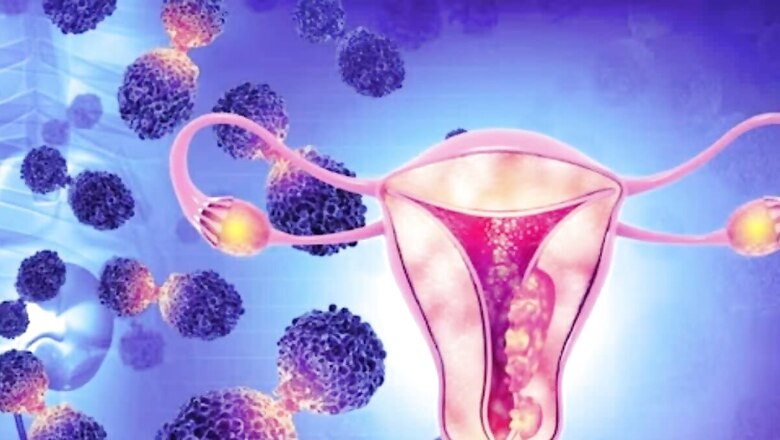
views
Cancer is one of the most deadly diseases in the world which involves abnormal cell growth that has the potential to invade or spread to other parts of the body. It can be due to several reasons including lifestyle choices, eating habits, exposure to UV rays and other reasons. A report by Apollo Hospitals revealed that 14 lakh people in India had cancer in 2020, which is expected to rise to 15.7 lakh by 2025. Women are more affected by gynaecological cancers such as breast, ovarian and cervical cancer. Knowing the symptoms of these cancers is very important for early detection, timely treatment and recovery. Let us take a look at some of the cancers affecting women, their symptoms and some preventive measures.
Ovarian cancer
It takes place in the ovaries. It is caused by family history, age and genetic mutations such as BRCA1 and BRCA2. Abdominal bloating, pelvic pain and changes in bowel habits are some of the symptoms of this cancer.
Cervical Cancer
It starts from the cervix. It is a cancer usually caused by an infection caused by the human papillomavirus (HPV), which is transmitted during sexual intercourse. Symptoms of this cancer include abnormal bleeding from the genital area, pain during intercourse and abnormal discharge of fluids from the genital area. Breast, oral and cervical cancer accounted for 32 percent of the new cases in India as per new estimates by the Global Cancer Observatory for 2022.
Vulvar Cancer
It is a type of cancer that occurs in the skin between the female genital area and the urethra. It is caused by HPV infection, smoking and pre-cancerous conditions. Symptoms of this cancer include constant itching, irritation and abnormal growths in the vulva area.
Prevention Measures
Women can get a Pap test and HPV test once a year to detect cancer at an early stage. The HPV vaccine can help to reduce the risk of cervical cancer. Following a healthy lifestyle not only helps prevent cancer but also has a significant impact on your overall physical health. A healthy lifestyle includes eating a balanced diet, maintaining a healthy body weight, exercising daily, avoiding tobacco and limiting alcohol consumption. Depending on your age and risk factors, more frequent cancer screenings may help.











Comments
0 comment